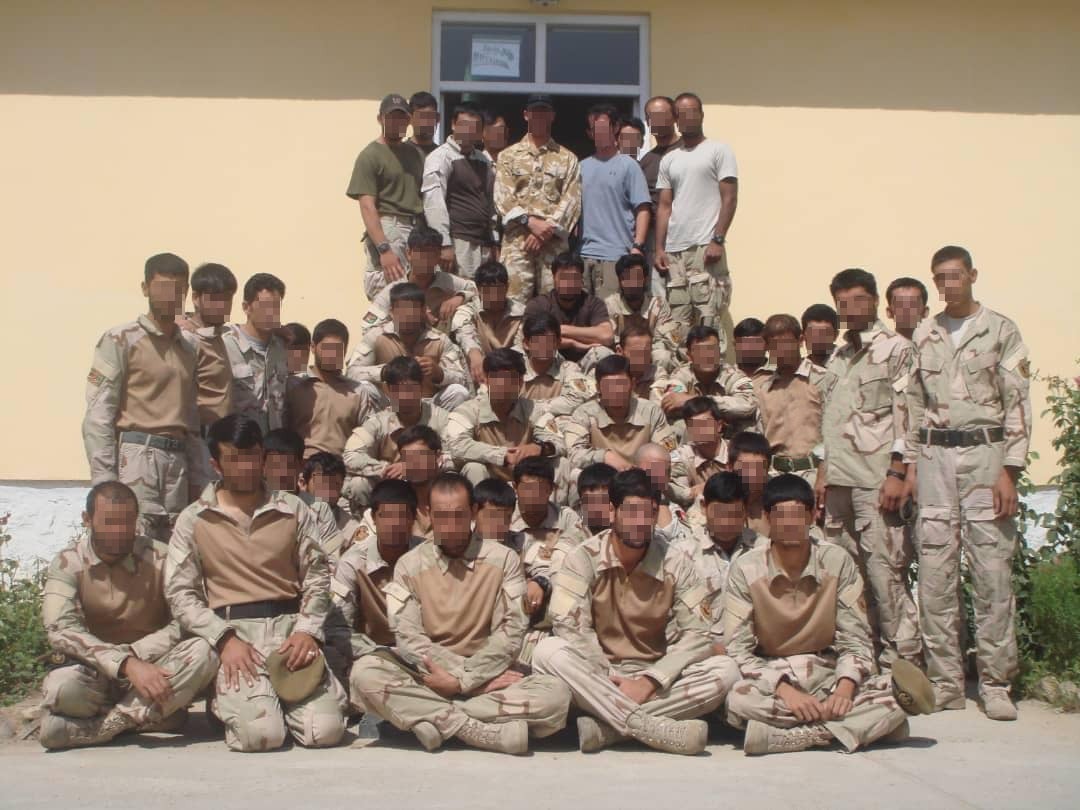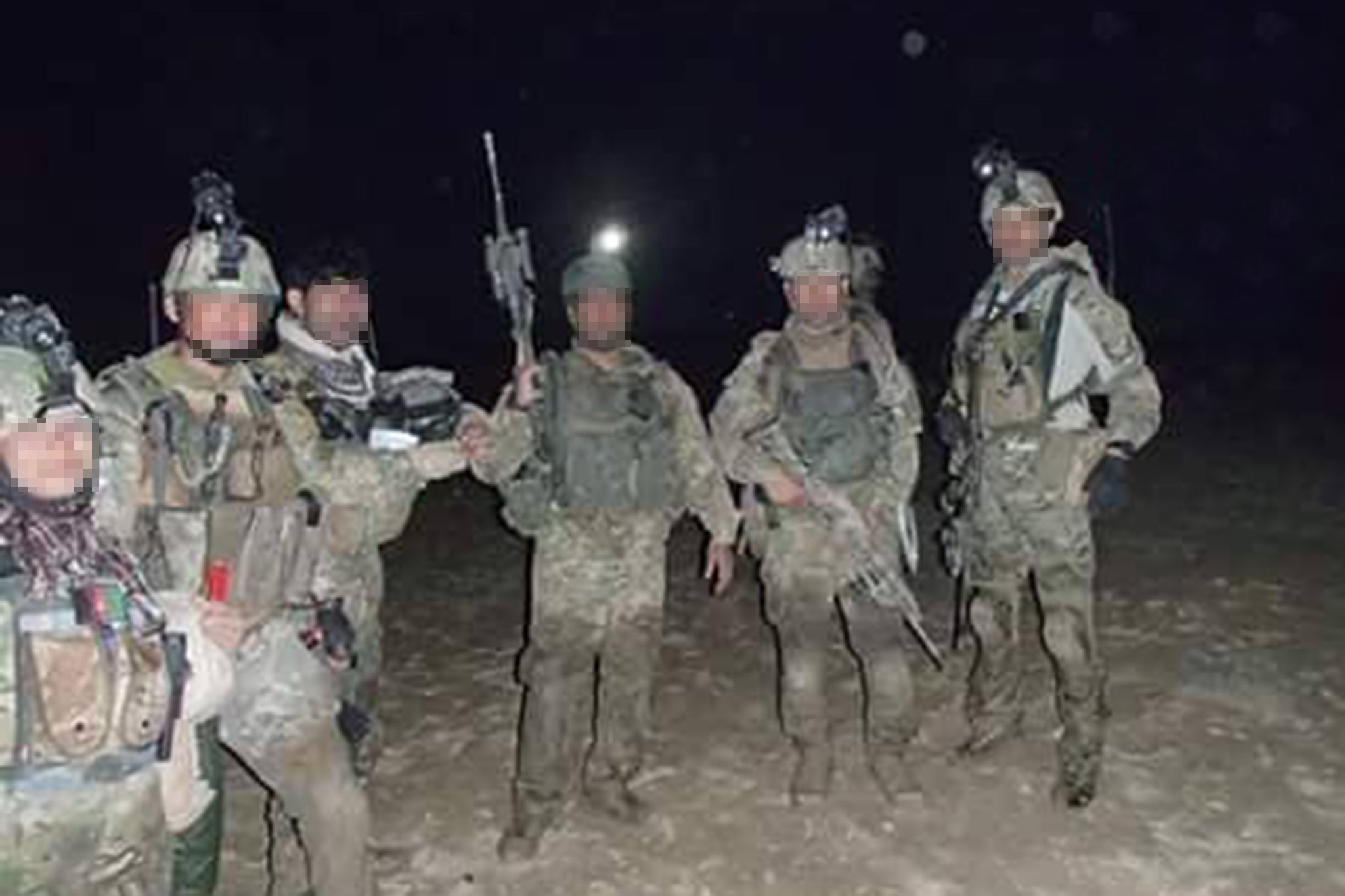Afghan commando who served with British tortured by Taliban for 13 days after being abandoned by UK
Rejected the help he was promised by the UK, Rahmatullah describes how he was kidnapped, subjected to water torture and beaten for 13 days by the Taliban
As Taliban assailants beat Rahmatullah’s body they rained down insults with each blow. “They told me: ‘You’re not a real Muslim. You’re a puppet. You helped the British. You have no honour and no dignity’.”
The former Afghan special forces soldier had returned home after the collapse of the Afghan government and the West’s withdrawal. Tired of months of hiding in his house, he said he went for a walk outside and was arrested by a group of Taliban members who accused him of working for the previous government.
He was blindfolded and taken to a mountainous area where 13 days of torture, which saw his head forced into water and his body beaten, began. Convinced he would be killed, he hoped his death would be a quick one. He said: “There were a bunch of them. One of them asked me to read a declaration as if I would be killed. The other guy was loading the rifle, and then someone else said: ‘No, we shouldn’t kill him’.
“I was terrified. I accepted that they would kill me, but they didn’t, they put me in a torture place. But when the ordeal started I kept wishing that they had killed me. I was going through the same pain again and again so many times every day. Each time I wished they would kill me so that the pain would end.”
Someone within Rahmatullah’s close community must have identified him as being connected with the previous government, he said, but his Taliban attackers didn’t have proof of how close his associations with the British were.
Rahmatullah, whose name has been changed to protect his identity, had worked for 14 years in an elite special forces unit so closely aligned with the British that he received a cash salary from them.

He is one of hundreds of Afghans who served in one of two little-known elite special forces units known as the “Triples”, which were set up, trained and funded by the British, and yet have been denied relocation to safety in the UK.
New details about the unit, Commando Force 333 (CF333), have been revealed in a joint investigation by The Independent, Lighthouse Reports and Sky News. Initially a counter-narcotics force, it soon developed counter-insurgency and counter-terrorism capabilities – helping British forces track down and capture Taliban and al-Qaeda leaders. A sister unit, Afghan Territorial Force 444, was set up a few years later and they both became known as “the Triples”.
Despite his service alongside the UK Special Forces (UKSF), Rahmatullah has been denied sanctuary in Britain. A rejection email sent to him by the Ministry of Defence (MoD) in March this year said he was not eligible for their resettlement scheme because he did not “work alongside a UK government department, in partnership with or closely supporting it”.
His experience is common. Our joint investigation found that these rejections are widespread, despite extensive evidence to show that these soldiers did work alongside the MoD.
We have documented dozens of cases of Afghan commandos who served in these units who have been tortured or murdered after Britain abandoned them to the Taliban. Their rejection is thought to be in breach of the MoD’s Afghan relocations and assistance policy (Arap), designed to relocate eligible Afghans who served with the British, and fails to deliver on then prime minister Boris Johnson’s pledge to do “whatever we can” to ensure that Triples members “get the safe passage they need”.

A CF333 ID card, which Rahmatullah provided in his application for help, bears a Union Jack flag and the words: “The bearer of this pass is a member of commando force 333 which is partnered with the British armed forces”.
His rejection is currently being challenged by lawyers at the Afghan Pro Bono Initiative. Becky Hart, from the organisation, said she was trying to get answers from the MoD about why they had rejected Rahmatullah’s case: “He waited over a year and a half for that refusal decision which gave no reasons as to why he’s been refused.”
She added: “Having waited that long, and then just received a template refusal, the way that he has been treated is outrageous.
“The CF333 were set up, trained and funded by the UK government, and received their salary directly from the UK government. They fall squarely within the MoD’s criteria for eligibility. There is clear and compelling evidence that they worked alongside and in partnership with the British armed forces. It’s not clear why these cases are being refused.”
Rahmatullah is desperate for the review of his application to succeed. Recalling his torture, he said: “Thirteen days became like 13 years for me. They would torture me to the verge of death, then they would stop. They would put my head in water and I couldn’t breathe. Then they put me in a car, took me to a building, tied me up and took turns beating me. One was beating with a plastic pipe, while the other was just punching, as they asked me questions.
“I was hanged upside down and when I didn’t respond they started putting my head in water. My eyes were turned to a cup of blood, all red. My shoulders to toes were black and dark blue and I wasn’t able to stand. I couldn’t sit or sleep, I was just laying on one of my sides.” Since his release at the end of 2022, he has spent the past year in hiding, fearing for his life.
Responding to this investigation, an MoD spokesperson said: “The UK government has made an ambitious and generous commitment to help eligible people in Afghanistan. So far, we have brought around 24,600 people to safety, including thousands of people eligible for our Afghan schemes.
“The MoD has never issued blanket decisions on applications from any cohort who have applied to the Arap scheme. All eligibility decisions are made on a case-by-case basis against strict criteria taken in accordance with the Immigration Rules and based on the evidence provided by individuals.”
Join our commenting forum
Join thought-provoking conversations, follow other Independent readers and see their replies
Comments
Bookmark popover
Removed from bookmarks